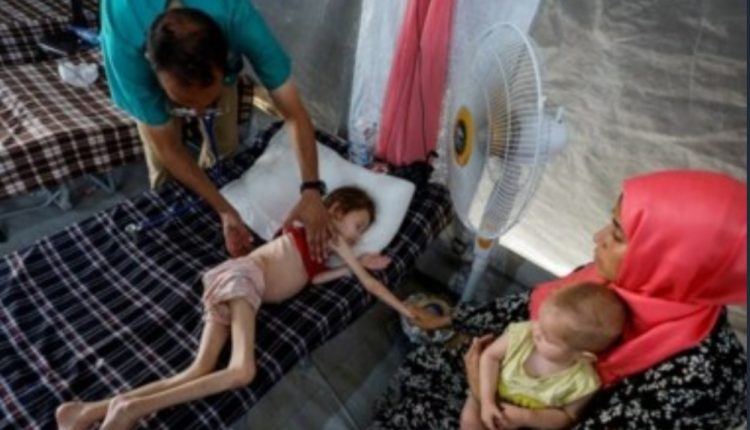UN: Gaza Aid Workers Fainting From Hunger as Humanitarian Access Shrinks
The United Nations has confirmed that several of its staff in Gaza have fainted from hunger and exhaustion in the past 48 hours. Juliette Touma, UNRWA’s Director of Communications, said doctors, nurses, journalists, and humanitarian workers, many of them UN staff, are collapsing while trying to serve others.
“Searching for food has become as deadly as the bombardments,” Touma said from Amman.
The UN Human Rights Office (OHCHR) reported that at least 1,054 Palestinians have been killed while trying to access food since the Gaza Humanitarian Foundation (GHF) began operating on May 27. Of those, 766 were killed near GHF distribution points and 288 near UN or NGO convoys.
The GHF is created by Israeli and US authorities and bypasses UN agencies.
UNRWA condemned the GHF’s distribution scheme. “It’s a sadistic death-trap,” said Touma. “Snipers open fire randomly on crowds as if they’ve been given a license to kill.” She called it a “massive hunt of people in total impunity.”
Gaza’s living conditions have reached historic lows. Prices for basic goods have surged by 4,000%. A bag of flour can cost up to $200. UNRWA shared that one staff member walked for hours just to buy a small amount of lentils and flour.
The UN World Food Programme warned this week that a quarter of Gaza’s population faces famine. Around 100,000 women and children suffer from severe acute malnutrition and need urgent treatment.
Basic hygiene items like diapers are nearly impossible to find. One diaper costs around $3. Mothers are now using plastic bags, while a father reportedly cut up his last shirt to make sanitary pads for his daughter.
“We have thousands of hygiene kits, food parcels, and medical supplies waiting outside Gaza’s gates,” Touma said. “But we are not being allowed to bring them in.”
On Monday, the World Health Organization reported three Israeli attacks on a building in Deir al-Balah housing WHO staff. The main warehouse was also destroyed. Staff and their families were forced to flee on foot to Al-Mawasi, under fire and without protection.
WHO spokesperson Tarik Jašarević condemned the targeting and mistreatment of civilians and aid workers. “Staff and children were exposed to grave danger and trauma,” he said.
UNRWA reiterated its call for a ceasefire and an agreement that would allow the regular flow of humanitarian aid into Gaza under UN supervision. “Humanitarian assistance is not the job of mercenaries,” said Touma.
She emphasized that the UN and its partners have the resources and experience to provide safe and large-scale assistance. But they are being blocked.
“The world must not accept this as the new normal,” she said.

